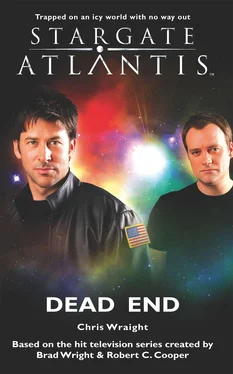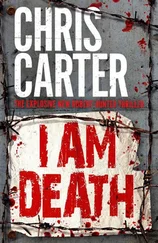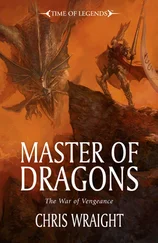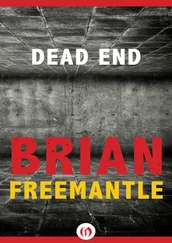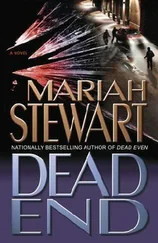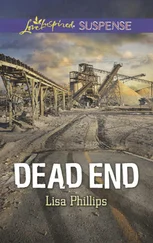“No argument,” said Sheppard. “We’ll check out the gate when we can. For now, be glad you’re not still out there.”
With that, the whole group moved down the corridor and deeper into the underground settlement. Far above them, the wind howled and moaned, and the fury of the storm continued unabated.
“Alright, what just happened?”
Weir spun round to face Zelenka.
“It wasn’t us!” Zelenka protested, fingers flying across the keyboard in front of him. “We just lost the signal. I’ve never seen it happen before. It was almost as if — But that’s impossible.”
“What’s impossible, Dr Zelenka?”
Radek ran his hands through his hair.
“OK, I’ll tell you what this computer tells me,” he said. “It looks like there was a power failure. The drain on the system was too much. They were stuck in the wormhole for a short period of time. Physically stuck. Now, don’t tell me that can’t happen, I know it can’t, but then readings end. Either they got out, or…”
He tailed off, distraught.
Weir took a deep breath. She was angry with him for having no answers, angry with Sheppard for talking her into the mission, and angry with herself for going along with him. But self-recrimination could come later, all that mattered now was getting her people home.
“OK, what are our options?” she said. “Have we got anything from the planet at all?”
Zelenka studied the screen, face creased into a frown. “No telemetry. Nothing. Wormhole has collapsed. And there are strange readings here. It looks like the gate at the other end has suffered some kind of malfunction. I can’t re-establish the wormhole. We need to study this.”
“That isn’t very helpful, Radek,” she snapped. “I need options. Fast .”
“I know,” Zelenka said, already on his feet. “I’m on it.”
Ronon walked easily through the narrow corridors. Orand walked beside him, with Teyla and Miruva close behind. The group had separated. Sheppard and McKay had been taken in one direction by Aralen, while he and Teyla had been invited to see the lower levels of the settlement.
As he walked, Ronon found himself enjoying the freedom afforded by the lack of a bulky environment suit. He never liked wearing the synthetic uniforms of the Tauri if he could help it, but felt very much at home in the furs and leather of the Forgotten. From what he had seen of these people, they were admirably strong and capable. With no fear of the Wraith, they had been forced to take on the elements of their homeworld instead. As an enemy, the endless cold of Khost was possibly just as formidable. The fact that the Forgotten refused to buckle and give-up impressed him.
“These are our living areas,” said Orand, gesturing to either side of the party.
Every few yards the walls of the corridor were broken by low entrances, the light was low and they looked dark and dingy. But when Orand pulled aside the tapestry hanging over one of the doorways, a cheery light escaped from the chamber beyond.
“Please, enter,” he said. “These are my quarters.”
Stooping, Ronon and Teyla stepped inside. Orand and Miruva followed them, walking with a supple grace. All of the Forgotten were lean, and despite their underground lifestyle there was little sign of sickness among them. Orand was tall and wiry, with dark hair and quick-moving brown eyes. His face seemed ready to crease into a smile at any moment. Miruva looked similar, though slimmer. If she was slightly less ready to talk than Orand, she seemed to weigh her words more carefully. Ronon thought he saw something of Weir in her calm demeanor.
The space beyond the hanging was not large, but capable of comfortably accommodating a small family. The walls were bare rock, but everything was tidy and well-kept. There were obviously more rooms branching off from the main chamber. As ever, these were screened by the embroidered hangings. Mats covered the floor, decorated with images of massive beasts — the White Buffalo, he presumed. Ronon studied the handiwork. On many worlds, such fine artifacts would fetch a rare price.
“How do you make these things?” he said, running the tapestry through his fingers.
“Our women weave the patterns from the plains grass,” Orand said, motioning for them to sit on the mats. “The White Buffalo graze on the plains, and so it sustains everything. But the winters have been harsher lately. The snows linger nearly the whole year, and the grass dies. The Buffalo travel further to find it, and so do we. As a result, these things are increasingly valuable. We make fewer every year.”
Miruva nodded. “They still provide meat for our tables, and fur to clothe our bodies. We use their bones and horn for our tools: an axe made from Buffalo horn can carve rock. In the summer season, their waste fertilizes our fields. We can cure their meat for the long winter months. They are everything for us.”
“Some speculate that the Ancestors created the Buffalo purely to serve our needs,” said Orand. “Without them, we would have perished many years ago.”
Ronon raised his eyebrow. “I would like to see these animals.”
Orand’s eyes lit up. “I hoped you would say so, as soon as I saw you. We could use a man like you. When the storm abates, the great hunt will begin again. Our stocks of food are low, and the deep winter is nearly upon us. We must make a kill, or our city will suffer. Will you come with us?”
Ronon looked at Teyla, unwilling to commit without consulting the rest of the team. But the thought of testing himself against the creatures was tempting. He was already feeling the need to flex his muscles.
The Athosian smiled back at him. “How much use are you going to be fixing the Jumper, Ronon?” she said. “We are going to have to remain here for some time. You should go with these people. You might even learn something.”
“It’d be a good test,” he said. “You should come too.”
Miruva’s eyes widened. “But you are a woman!” she said, laughing. “Women do not hunt the buffalo. Such a thing has never been done.”
Ronon knew this would irritate Teyla. To her credit, her feelings did not show on her face. “Where we are from,” she said, her voice icy calm, “women do all that men do. I fight with my team, just as Ronon does.”
Orand started to laugh, but was cut short by a glare from Teyla. Seeing the look on her face, he quickly let his eyes fall to the floor.
“Your people have strange ways!” Miruva said, delighted. “Perhaps we can indeed learn from you. I have often thought it unfair that the menfolk must take on all the risk of the great hunt. There is no longer enough grass for us to weave here.”
Orand looked skeptical. Ronon could see that he was protective of her and wondered if they were a couple. If they weren’t, then he guessed Orand would like them to be.
“You’d have to get past your father, first,” said the young hunter. There was an edge to his voice.
“He is old-fashioned, then?” said Teyla, gently probing for information.
This was what Teyla was good at, thought Ronon, gaining people’s trust, finding out more about the situation without causing offense. She was a natural diplomat.
Miruva let slip a sad smile. “My father is a good man. He’s guided us for many years, and our people have survived thanks to his planning and dedication. But he is old. He believes that the Ancestors have ordained everything. And so there is no change, and we cling to tradition in all things.”
“Not all of us feel the same way,” interjected Orand. “Some have called for a great exodus, to try and find better hunting grounds and warmer weather.”
“But you’ve chosen to stay?” said Ronon.
Читать дальше
